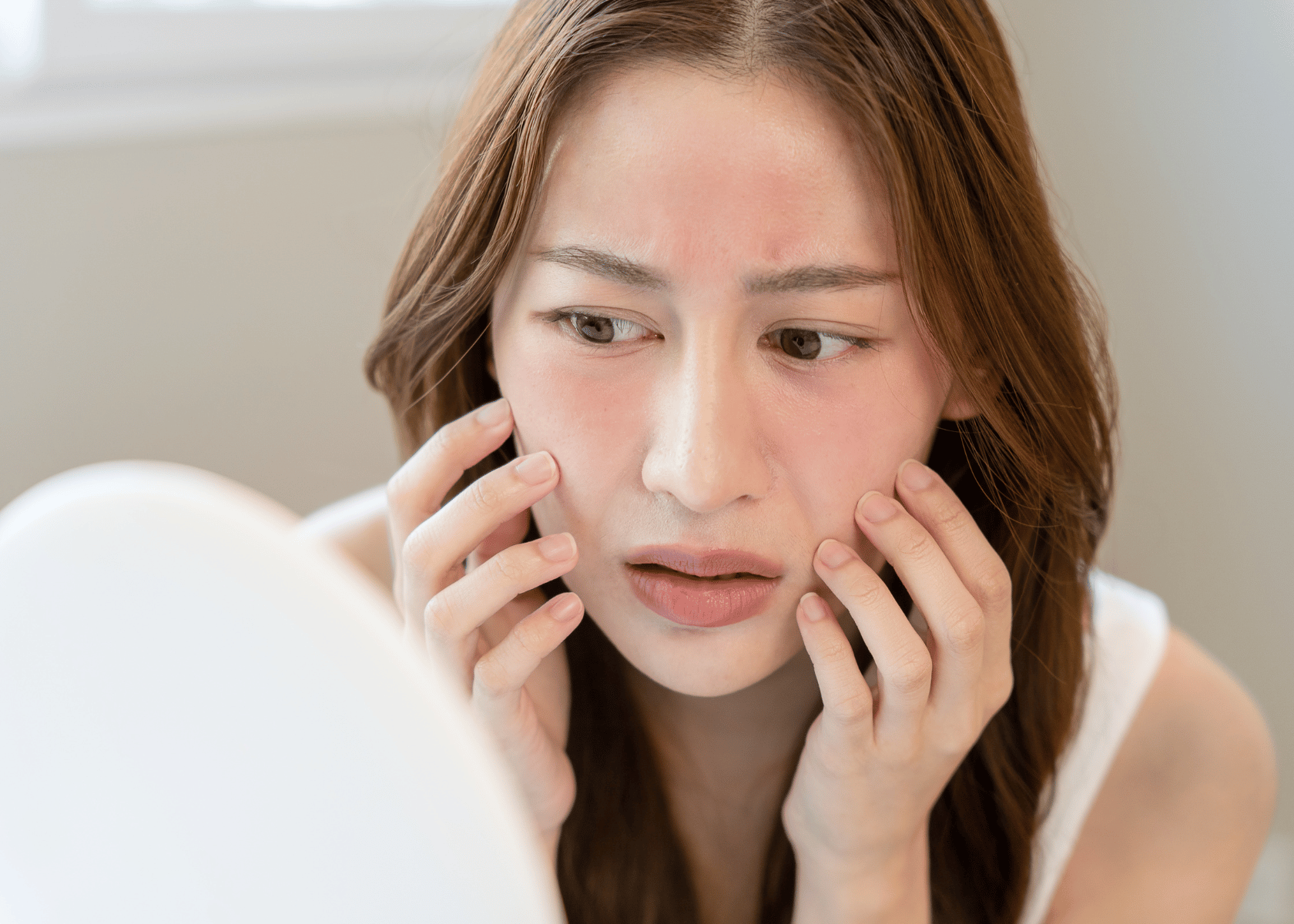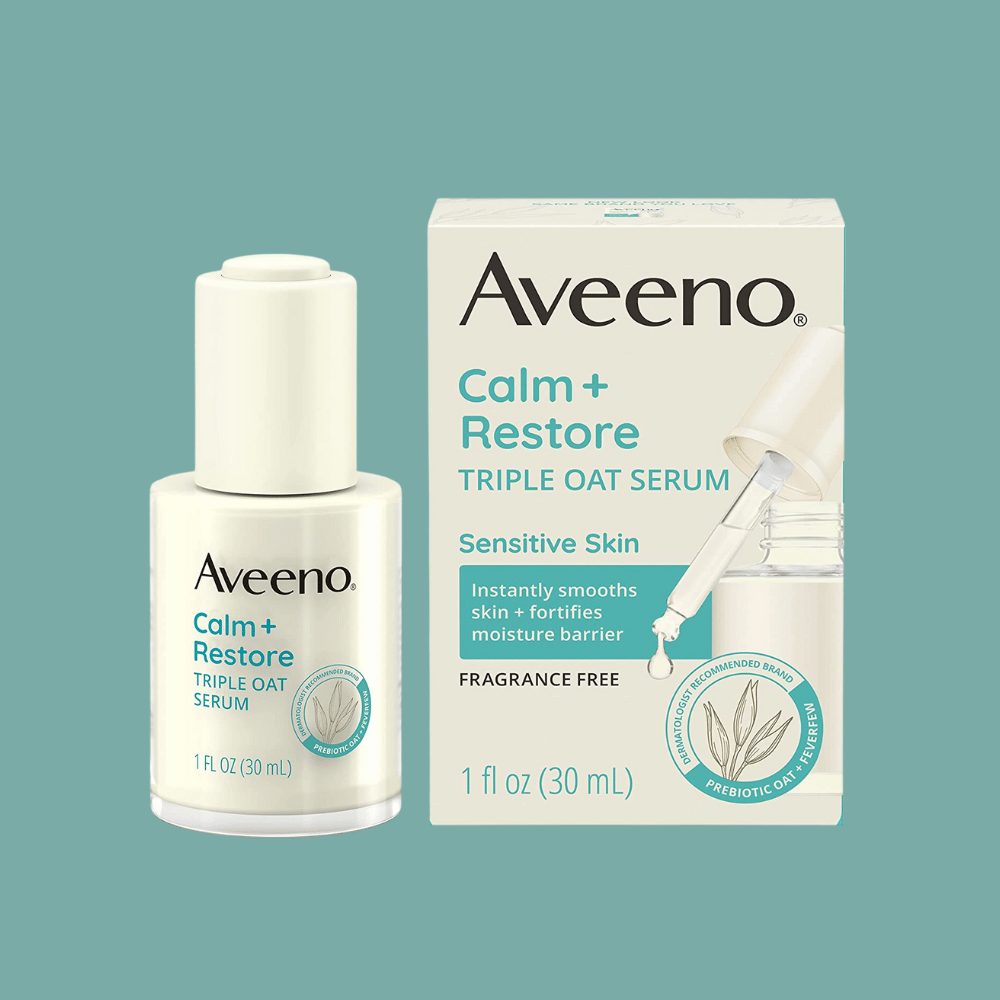Are you finding yourself deeper and deeper in a battle with sensitive skin? Every time you try something new, it seems your skin reacts more intensely than usual.
You’re left scratching your head, wondering why this is suddenly happening to your once-perfect complexion. We understand the struggle—that’s why we’re here to help!
In this blog post, we will discuss some common causes as to why your skin has become so sensitive all of a sudden. Read on to find helpful tips and advice on how you can tackle this issue the right way and save your skin from unnecessary harm!
Symptoms of Sensitive Skin
Sensitive skin is a common condition that can affect anyone, regardless of age or gender.
Some of the common symptoms of sensitive skin include irritation, redness, itching, dryness, and scaly patches. These symptoms are often caused by various factors such as genetics, environmental factors, and skincare products.
Reasons Why Your Skin is Suddenly Sensitive

Some of the common causes of sudden sensitivity include the following.
Genetics
One of the most common causes of sensitive skin is genetics. People who have a family history of eczema, psoriasis, or allergies are more likely to develop sensitive skin.
Environment
Environmental factors, like weather changes and pollution, also contribute to skin sensitivity. Exposure to extreme weather, such as cold or hot temperatures or wind, can cause dehydration, which can make the skin more prone to sensitivity.
Even air pollution and UV rays can cause irritation, rashes, and skin reactions.
Wrong Skincare
Using the wrong skincare products can also lead to sensitive skin. Many products on the market contain harsh chemicals that can cause irritation and redness, especially in people with sensitive skin. Find out if you have oily skin or dry skin and choose products accordingly.
Common irritants to avoid include alcohol, fragrances, and preservatives. It is important to choose products that are specifically formulated for sensitive skin and free from harsh chemicals.
Stress
Another major factor that can cause extremely sensitive skin is stress. When we are under stress, it triggers the release of hormones that can cause our skin to become more sensitive.
Stress can also cause inflammation, which can lead to redness, irritation, and other skin issues.
Hence, sensitive skin conditions can be caused by a variety of factors. It is vital to identify the underlying causes to effectively manage and prevent symptoms.
How to Treat Sensitive Skin

Sensitive skin is a common issue that affects many people, and it can be challenging to find the right treatment that works for you. If you have sensitive skin, then you need to take extra care when it comes to the products you use on your body. Here are some tips on how to treat sensitive itchy skin:
Identify triggers
The first step in treating sensitive skin is to identify what triggers it. Keep a journal of the products you use and note down any reactions you experience. You can also consult a dermatologist, who can help you identify the sensitizing agents.
Use gentle products
Sensitive skin requires gentle care. Choose products that are specifically designed for sensitive skin or are free from harsh chemicals, fragrances, and dyes. Look for products that are labeled hypoallergenic and non-comedogenic.
Moisturize regularly
Dry skin is common in people with sensitive skin. Regularly moisturizing your skin can help to reduce itchiness, dryness, and inflammation. Choose a moisturizer that has ingredients such as ceramides, glycerin, and hyaluronic acid.
Avoid hot water
Hot water can strip the skin of its natural oils and aggravate sensitive skin. Use lukewarm water when washing your face and body, and avoid using hot tubs and saunas.
Protect your skin from the sun
Sun exposure can lead to further irritation, redness, and inflammation in sensitive skin. Apply a broad-spectrum sunscreen with an SPF of 30 or higher before going outside, and wear protective clothing such as hats and long-sleeved shirts.
Consult a dermatologist
If you have severe or persistent symptoms of sensitive skin, it may be beneficial to consult a dermatologist. They can help identify the root cause of your symptoms and recommend appropriate treatment options.
Natural Remedies to Treat Sensitive Skin

Sensitive skin is a common problem that affects people of all ages, genders, and ethnicities. Those with sensitive skin are more prone to developing skin irritations, such as redness, itching, and flakiness.
Luckily, there are various natural remedies that can be used to treat and soothe sensitive skin, depending on the skin's ability to rejuvenate.
Aloe Vera
One of the most effective natural remedies for sensitive skin is aloe vera. Aloe vera has anti-inflammatory properties that can pass the skin barrier and help reduce redness, swelling, and itching.
It also contains vitamins and minerals that can soothe and nourish sensitive skin. Applying a thin layer of aloe vera gel to the affected area can provide quick relief from skin irritations.
Chamomile
Another natural remedy for sensitive skin is chamomile. Chamomile has anti-inflammatory and antioxidant properties that can help reduce skin inflammation and promote skin healing. It is also rich in flavonoids that can protect the skin from environmental damage.
Adding a few drops of chamomile essential oil to a carrier oil, such as coconut oil, and applying it to sensitive skin can provide a calming and soothing effect.
Oatmeal
Oatmeal is another excellent natural remedy for sensitive skin. Oatmeal is rich in antioxidants and anti-inflammatory compounds that can help reduce skin irritation and inflammation.
It also contains saponins, which can help cleanse the skin without stripping it of its natural oils. Mixing oatmeal with water or milk to create a paste and applying it to the affected area can help soothe and moisturize the skin.
Honey
Honey is a natural ingredient that has been used for its healing properties for centuries. Honey contains antibacterial and anti-inflammatory properties that can help reduce skin inflammation and redness.
It is also a natural humectant, which means it can help retain moisture in the skin. Applying a thin layer of honey to the sensitive skin and leaving it on for 15-20 minutes can provide a hydrating and soothing effect.
Natural remedies can be used to treat and soothe sensitive skin. It is important to remember that every individual has a unique skin type, and what works for one person may not work for another.
Buy a Sensitive Skin Care Product
Are you tired of trying all sorts of natural remedies for your sensitive skin without any positive results?
Sensitive Skin Care products are specifically tailored to soothe and calm your skin while providing intense hydration. The premium ingredients used in the product keep skin moisturized and nourished all day long. They are also lightweight enough, so they won’t clog your pores or leave behind grease film on the surface after use.
Trust us- nothing is better than having a luxurious yet gentle skincare routine that actually works! These special formulations have been carefully developed and tested to ensure maximum effectiveness without leaving behind any damaging residue on the skin.

Aveeno Calm + Restore Triple Oat Hydrating Face Serum
The serum's lightweight texture absorbs quickly into the skin, leaving it feeling hydrated and instantly smooth after just one use. Its unique combination of oat flour, extract, oil, and calming feverfew helps to effectively calm irritated, dry skin while actively strengthening its moisture barrier for healthier-looking skin in the long run. It is specifically created for sensitive skincare needs. It's fragrance-free, paraben-free, alcohol-free, dye-free, and non-comedogenic so it won't clog pores - all this without compromising on effective results. Highly recommended for anyone with sensitive or irritated skin!
Frequently Asked Questions
Your skin is your body's largest organ, and it's constantly exposed to the environment. It's no wonder that skin can become irritated and sensitive all of a sudden.
Environmental factors such as pollution, sun exposure, and stress can take their toll on our skin. And if you're using harsh chemicals or artificial ingredients in your skincare products, that can make things worse.
Switching to natural and organic skincare products is the best way to soothe irritated and sensitive skin. These products are made with only the finest ingredients, including plant extracts and essential oils, to provide maximum nourishment for your skin.
Why does my skin hurt when I touch it but there's nothing there?
If you experience skin irritation that feels like it's coming from something, but when you look there is nothing there, it could be caused by a number of different conditions.
For example, certain allergies can cause hives that feel like an itch or pain in the skin, even though you may not see anything. It could also be a reaction to contact with everyday materials such as detergent or fabric softener, as well as medical conditions like eczema and rosacea.
If you are experiencing this kind of discomfort, it's best to talk to a doctor who can help diagnose the cause and provide treatment options.
How do you fix sensitive skin?
Sensitive skin can be difficult to manage, but the best way to fix it is to start by identifying the root cause. This may involve seeing a doctor or dermatologist for a professional diagnosis, but some common causes of sensitive skin include genetics, environmental stressors, lifestyle choices, and medical conditions.
Once you find out what is causing your sensitivity-prone skin woes, you can take steps to address them. For example, using fragrance-free soaps and moisturizers, avoiding extreme temperatures, and protecting your skin from sunlight can all help reduce irritation.
Additionally, certain supplements such as omega-3 fatty acids have been found to help reduce inflammation in sensitive skin. Taking a holistic approach to managing sensitivities is key to keeping your skin healthy in the long term.
What diseases cause skin sensitivity?
Skin sensitivity can be caused by a variety of medical conditions, including eczema, psoriasis, rosacea, contact dermatitis, and allergic reactions.
Eczema is a chronic inflammatory skin condition characterized by redness, itching, and flaking, while psoriasis is an autoimmune condition that causes thick patches of scaly skin.
Rosacea is another common skin disorder characterized by facial redness and bumps. Allergic contact dermatitis is an inflammation of the skin caused by contact with certain substances such as cleaning products or cosmetics.
Allergic reactions may also lead to sudden skin sensitivity and are often caused by exposure to things like pollen or pet dander.
Conclusion
All in all, it’s incredibly important to pay close attention to your skin’s reactions. Skin sensitivity can be caused by many factors, so it's important to be mindful of them and make sure not to overlook any potential issues or conditions that might be causing it.
If you find yourself struggling with particularly bad episodes of skin sensitivity, try using a natural moisturizer like aloe vera or coconut oil as these are great ingredients for calming irritated skin.
Additionally, you can ask your dermatologist for advice on how to best treat and manage the symptoms of sensitive skin. Lastly, remember to stay hydrated since hydration plays an essential role when it comes to healthy skin.
Carefully observing your lifestyle habits and environment could be the first step towards achieving optimal health and well-being.
Enjoy exploring our world of beauty!



